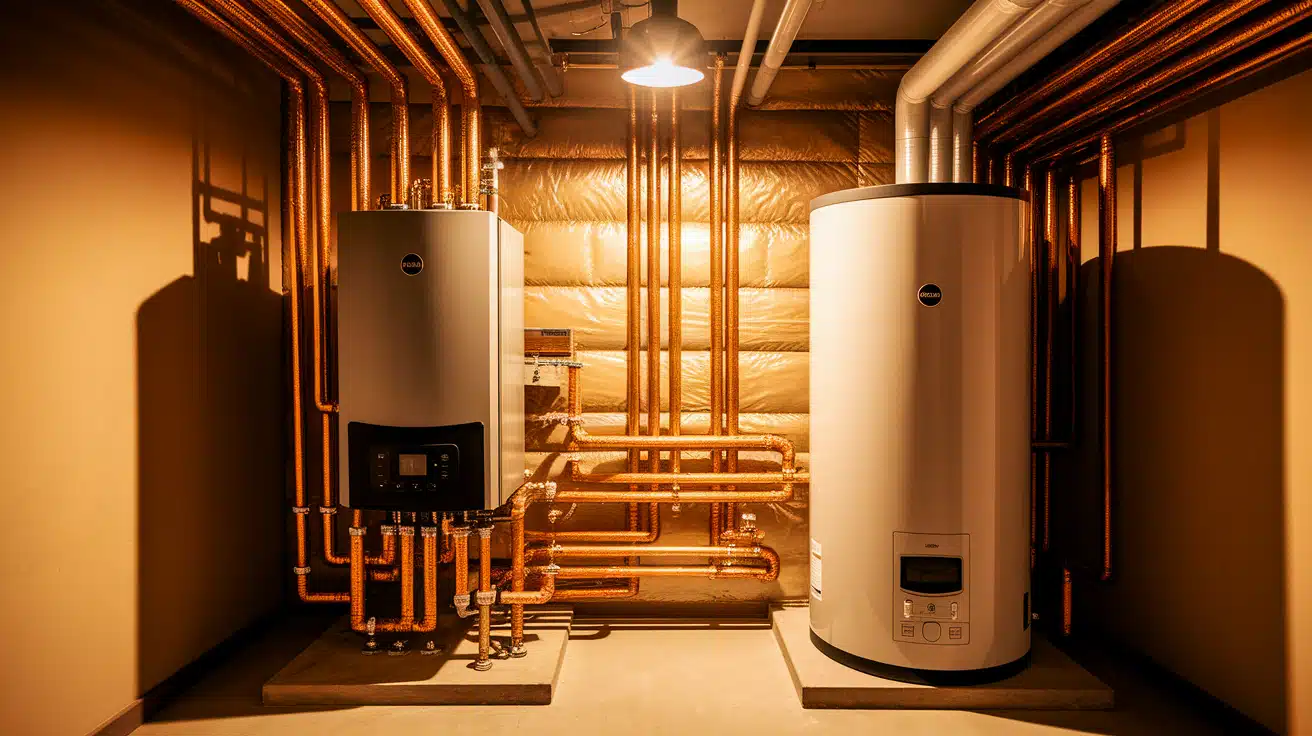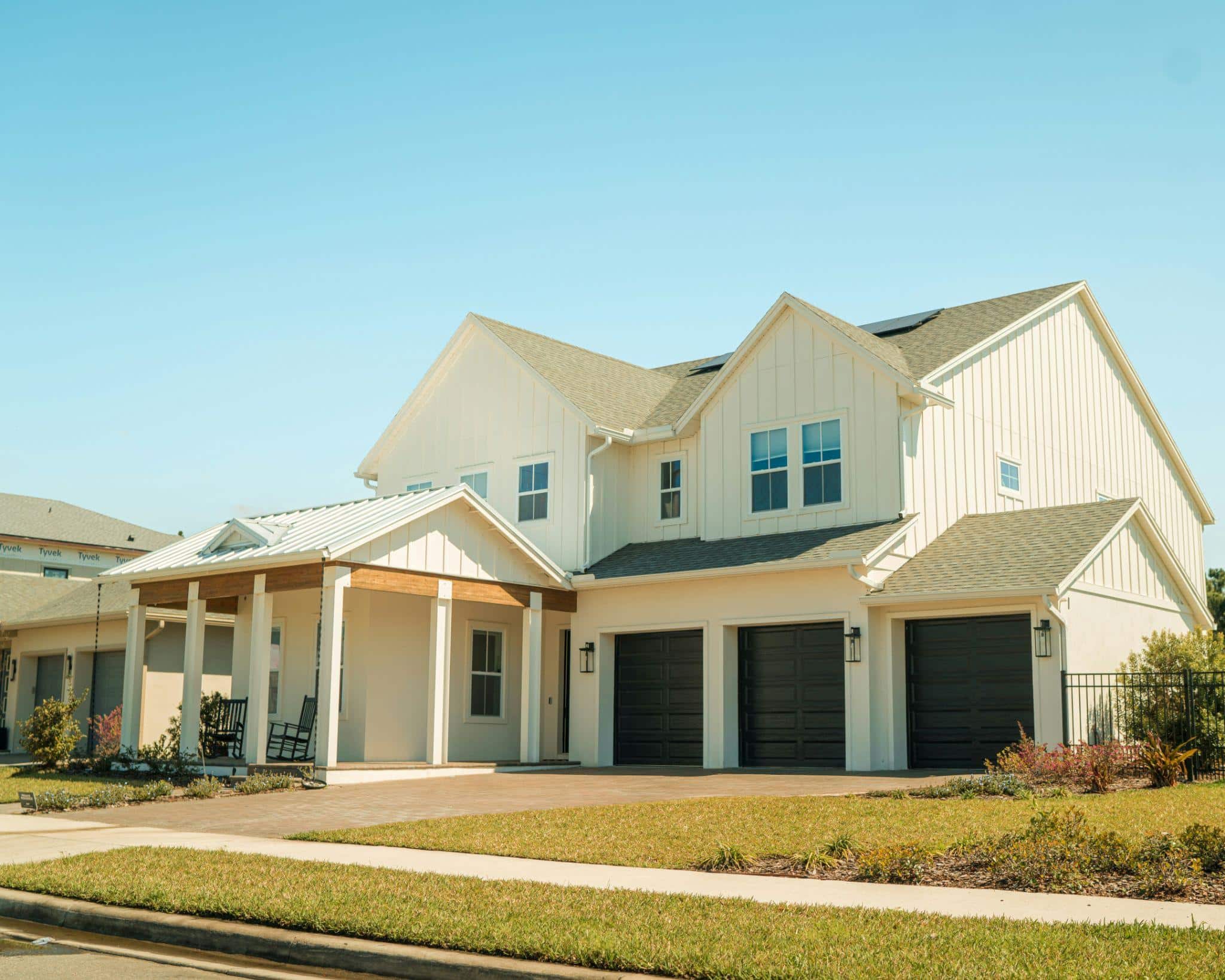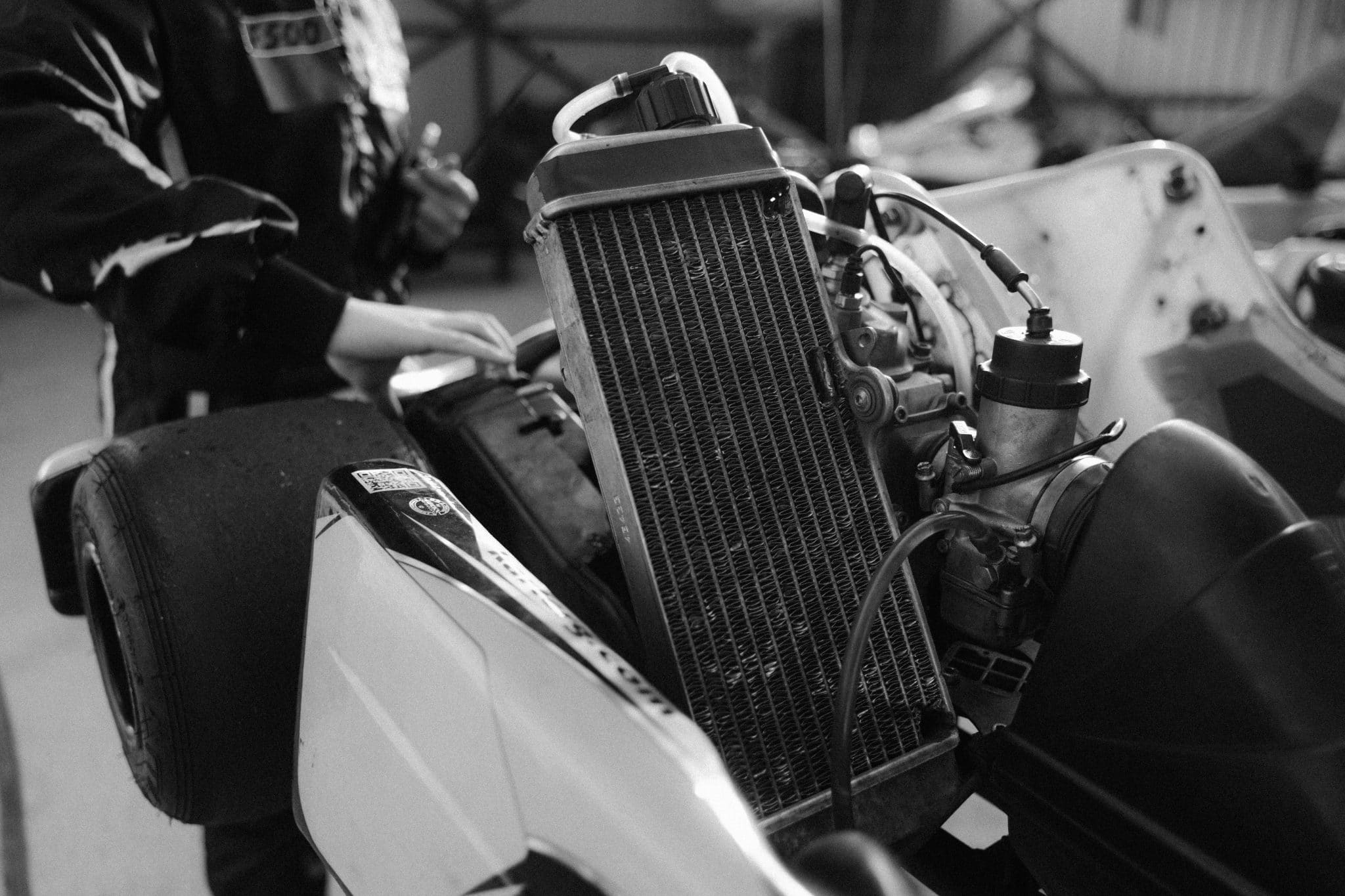Choosing between a boiler and a water heater for your home can be confusing. Both systems heat water, but they serve very different purposes and have distinct advantages. Many homeowners struggle to understand which option best fits their needs, budget, and living situation.
Here’s the good news: Once you understand the key differences between these systems, the decision becomes much clearer.
We’ll explain exactly how boilers and water heaters work, compare their costs and benefits, and help you determine which system best suits your home’s requirements.
In this guide, you’ll learn the fundamental differences between boilers and water heaters, when each system works best, cost comparisons for installation and operation, and practical tips to make the right choice for your specific situation.
By the end, you’ll know exactly which heating solution will serve your home most effectively.
What Is a Water Heater?
A water heater is a home appliance that heats and stores hot water for daily use. Its main job is to take cold water from your home’s supply and warm it up for showers, dishwashing, laundry, and other household tasks.
Types of Water Heaters
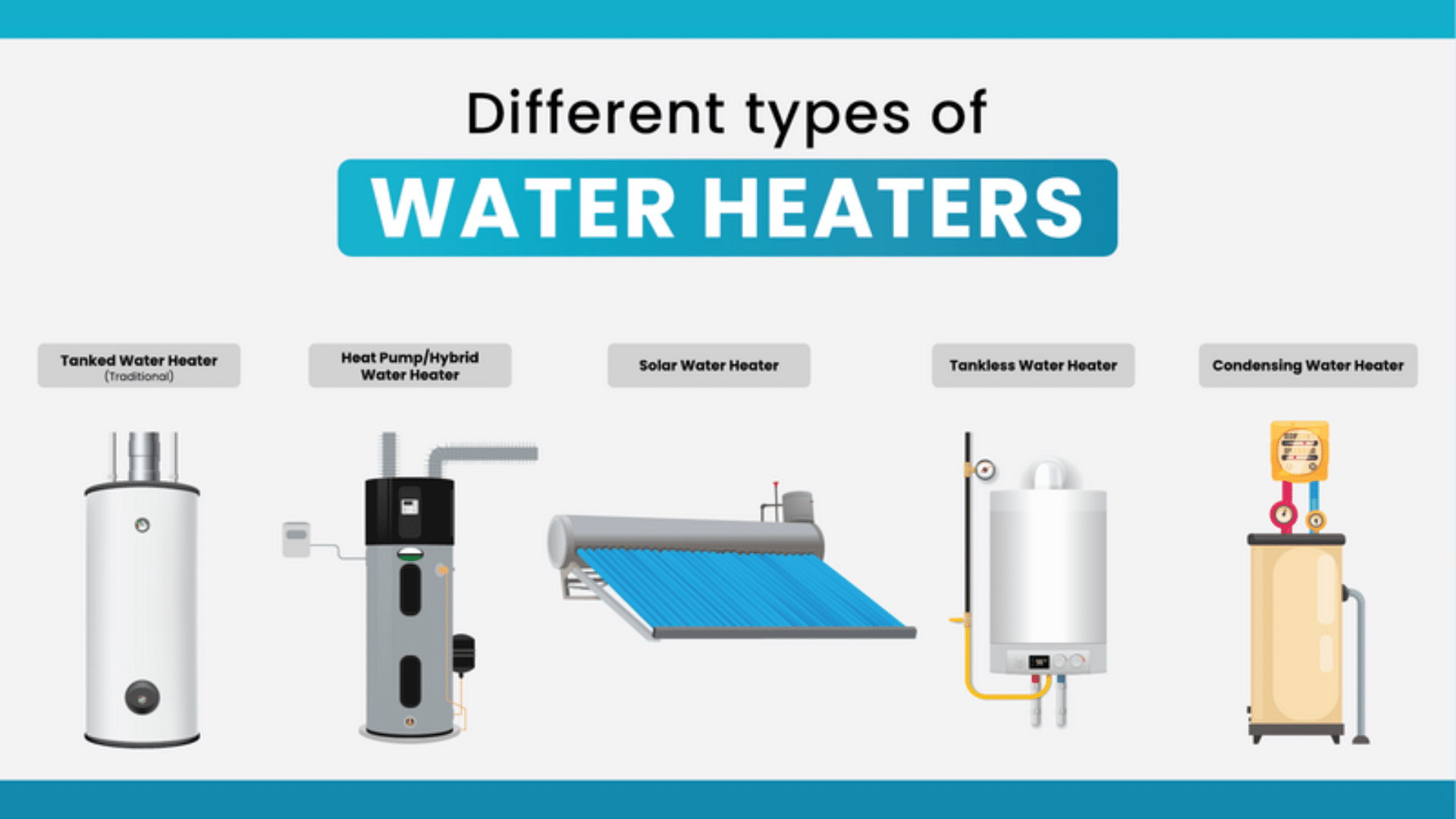
- Tank Water Heaters store heated water in a large container, usually holding 30-80 gallons. These units keep water hot and ready to use at all times.
- Tankless Water Heaters heat water instantly when you turn on a faucet. They don’t store hot water, which saves space and can reduce energy costs.
- Heat Pump Water Heaters pull warmth from the air around them to heat water. They use less electricity than standard electric models.
- Solar Water Heaters use energy from the sun to warm water through special panels on your roof.
Common Household Uses
Water heaters supply hot water for showers, baths, washing dishes, cleaning clothes, and general cleaning tasks. Most homes use hot water dozens of times each day.
Energy Sources
- Electric water heaters use electricity to power heating elements inside the tank or unit.
- Gas water heaters burn natural gas or propane to create heat.
- Solar models rely on sunlight as their primary energy source, though many have backup electric or gas systems for cloudy days.
- The right water heater depends on your home size, hot water needs, and local utility costs.
When to Choose a Water Heater?
Water heaters suit small households with basic hot water needs for showers, dishes, and laundry. They’re ideal for budget-friendly setups where upfront costs matter more than long-term efficiency.
Simple water heater installations benefit homes in warm climates that don’t need extensive heating systems. Compact tankless models also work well in apartments and condos with limited space.
Water Heaters: Pros and Cons
| Advantages | Disadvantages |
|---|---|
| Lower cost to purchase and install | Only provide hot water, not home heating |
| Compact design – takes up less space | Tank models can run out of hot water during heavy use |
| Operates independently from home heating systems | Shorter lifespan: typically 8–12 years |
| Simpler and cheaper repairs | May lead to higher energy costs if paired with separate heating |
| Tankless models offer unlimited hot water | Requires an additional system for space heating |
| Energy-saving with on-demand heating (tankless units) | Limited integration compared to combi-boilers |
Cost Implications
For most homes, water heater installation costs between $1,200 and $3,500. Tank models cost less upfront but use more energy. Tankless units cost more initially but save 20-30% on water heating bills.
Maintenance costs stay low at $100-$200 annually, making water heaters budget-friendly for basic needs.
What Is a Boiler?
A boiler is a heating system that heats water or creates steam to warm your entire home. Unlike water heaters that only provide hot water for taps and appliances, boilers focus on heating your living spaces through radiators, baseboard heaters, or radiant floor systems.
Types of Boilers
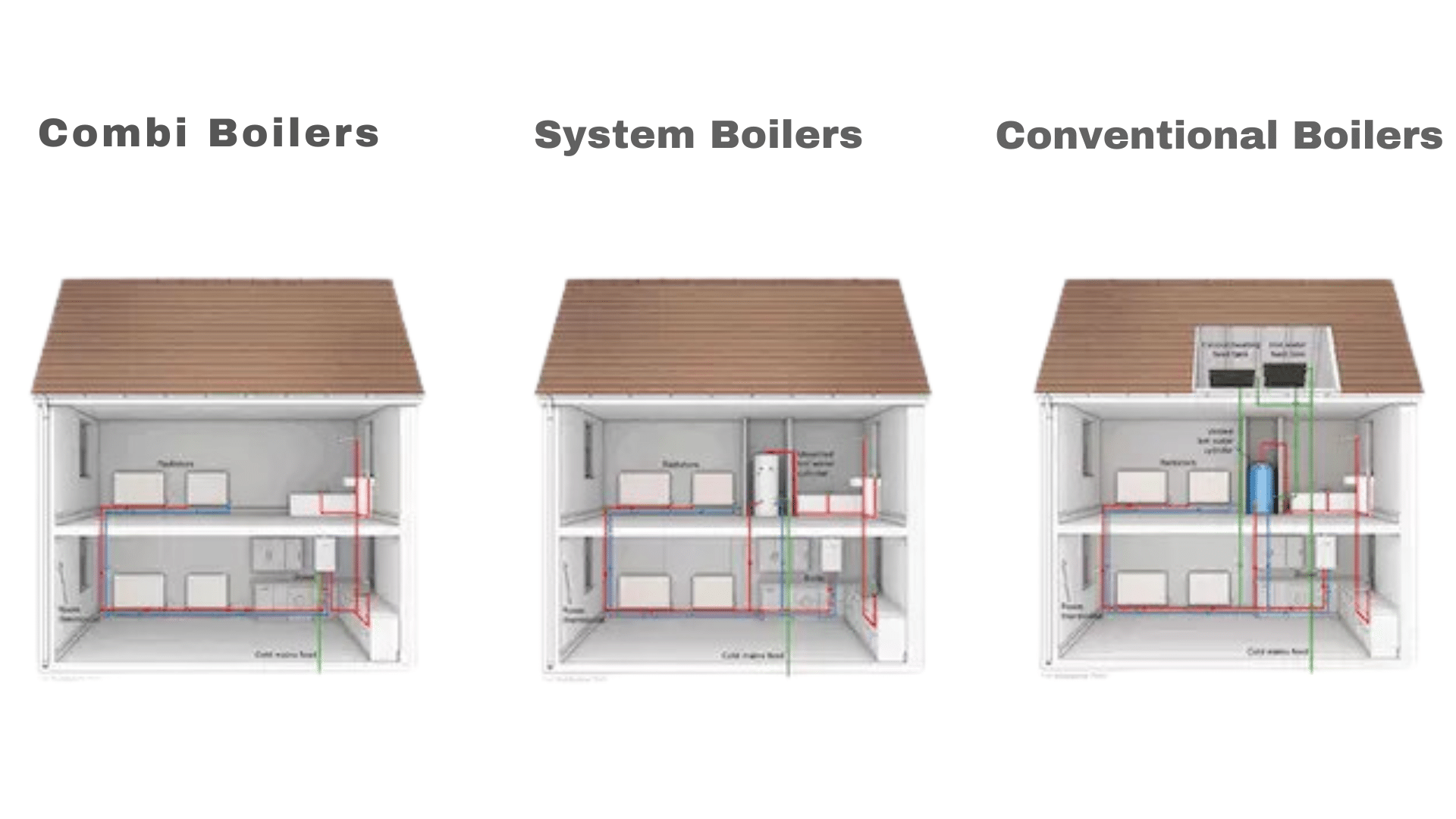
- Combi Boilers combine home heating and hot water supply in one compact unit. They heat water on demand and don’t need separate storage tanks.
- System Boilers work with a separate hot water storage cylinder. They’re good for homes with multiple bathrooms and high hot water demand.
- Conventional Boilers use both a hot water cylinder and a cold water storage tank. These older systems take up more space but work well in large homes.
Common Applications
- Home Heating is the main use, warming houses through radiators or baseboard units.
- Radiant Floor Systems use boilers to circulate warm water through pipes under your floors.
- Industrial Uses include heating large buildings, powering equipment, and providing steam for manufacturing processes.
Boilers offer steady, comfortable heat and can last 15-30 years with proper care.
When to Choose a Boiler?
Boilers work best in cold climates where consistent home heating is essential for several months each year. They’re perfect for homes with radiant floor heating systems that provide comfortable, even warmth throughout living spaces.
Large homes with multiple zones benefit from boilers since they can heat different areas at different temperatures. Older homes with existing radiator systems also make good candidates for boiler upgrades.
Boiler Heating Systems: Pros and Cons
| Advantages | Disadvantages |
|---|---|
| Provides steady, comfortable heat without drafts or air movement | Higher upfront costs compared to other systems |
| Operates quietly and doesn’t dry out the air | Slower heat-up time than forced-air systems |
| Offers high energy efficiency in modern models | No cooling capability – separate AC needed |
| Dual function: Heats both the home and the water supply | Complex installation process |
| Long lifespan: Typically 15–30 years | Requires specialized technicians for service and repair |
| Reduces the need for a separate water heating system | Leak risk can lead to costly water damage |
Cost Implications
Expect to pay $3,500-$8,000 for boiler installation, depending on size and type. Annual maintenance runs $200-$400. However, boilers often reduce overall energy bills by 10-20% compared to separate heating and water systems, paying for themselves over 8-12 years.
Key Differences Between Boilers and Water Heaters
Understanding the main differences between boilers and water heaters helps you choose the right system for your home. Here’s how these two systems compare across key areas.
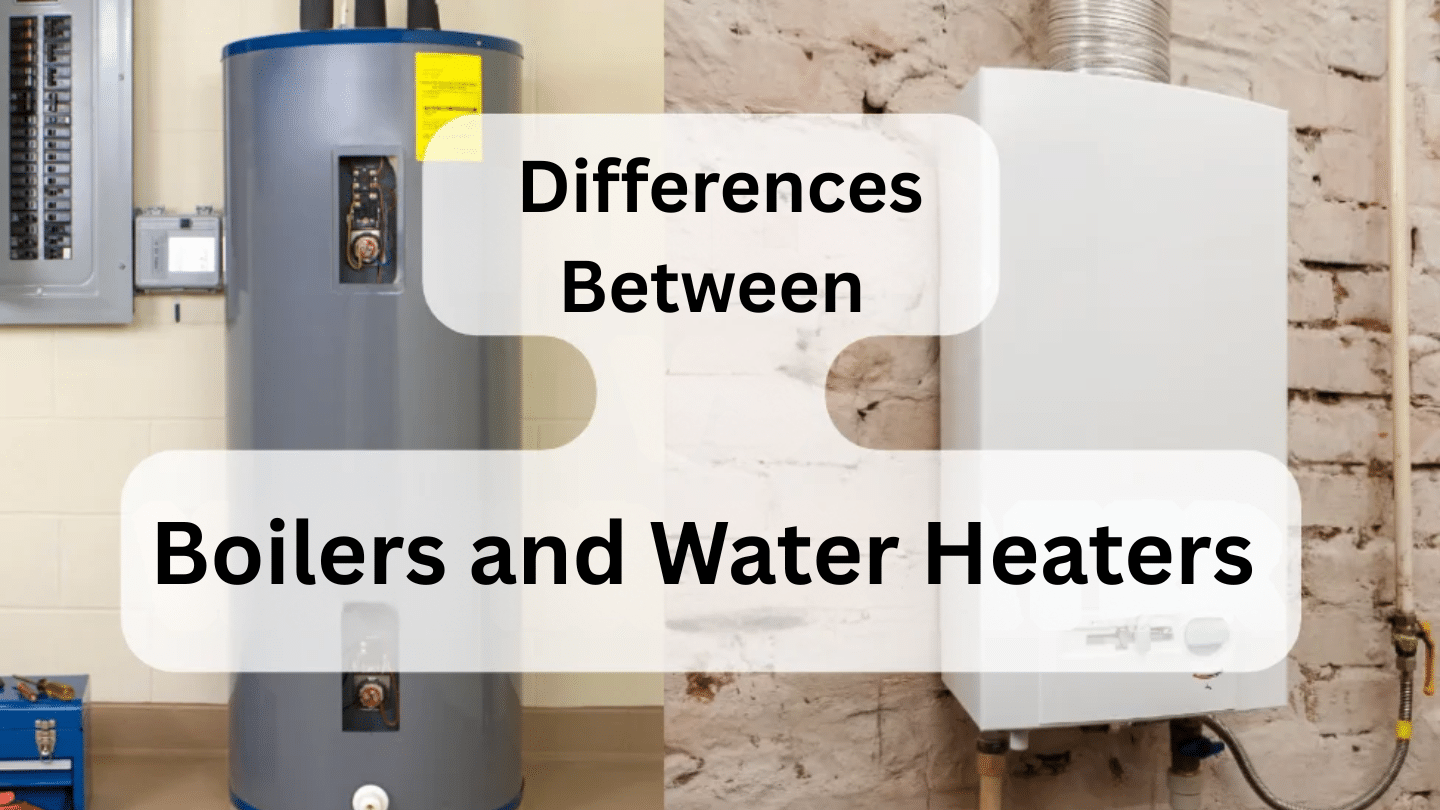
1. Functionality
Water heaters have one job: heating water for household use, like showers, dishes, and laundry. They warm water and store it or heat it on demand.
Boilers serve a dual purpose: They heat your home through radiators or floor systems, and can provide hot water for daily use. Think of boilers as complete heating solutions.
2. Design & Components
Water heaters have simple designs, with heating elements, temperature controls, and either storage tanks or heat exchangers. Most models fit in small spaces, like closets or basements.
Boilers require more complex systems, including pumps, expansion tanks, pressure gauges, and extensive piping networks. They connect to radiators, baseboard heaters, or floor heating systems throughout the home.
3. Installation Requirements
Water heaters need basic plumbing connections and electrical or gas hookups. Most installations take a few hours and don’t require major home modifications.
Boilers require professional installation, which often requires several days and may require permits. They also require specialized piping, venting systems, and integration with your home’s heating distribution network.
4. Energy Efficiency and Consumption
Water heaters typically use energy only when heating water, though tank models maintain a temperature. Tankless units offer better efficiency by heating on demand.
Boilers can be highly efficient since they heat both your home and water supply. Modern condensing boilers reach 90-95% efficiency ratings, using less fuel than separate heating and water systems.
5. Maintenance Needs
Water heaters require annual flushing, temperature checks, and occasional part replacement. Maintenance costs stay relatively low.
Boilers need regular professional servicing, including pressure checks, cleaning, and system balancing. Annual maintenance prevents costly repairs and ensures safe operation.
Conclusion
Choosing between a boiler and a water heater depends on your specific home needs, climate, and budget. Water heaters work best for smaller households that only need hot water for daily tasks like showers and dishes.
Boilers cost less upfront and are suitable for warm climates where home heating isn’t a major concern. They also make sense for larger homes in cold climates where consistent space heating is essential.
While they cost more initially, boilers provide both home heating and hot water, often saving money long-term through better energy efficiency.
If you want simple, budget-friendly hot water, choose a water heater. If you need whole-home heating plus hot water in one efficient system, a boiler is worth the investment.
Both systems can effectively serve homes when matched to the right situation. Before making your decision, evaluate your climate, home size, hot water usage, and long-term budget.
Frequently Asked Questions
Can a Boiler Heat Water for Showers and Dishes?
Yes, most modern boilers can provide hot water for household use while also heating your home.
How Long Do Boilers Last Compared to Water Heaters?
Boilers typically last 15-30 years, while water heaters usually need replacement after 8-12 years.
Do I Need a Separate Water Heater if I Have a Boiler?
No, many boiler systems include hot water production, eliminating the need for a separate water heater.
Which System Works Better During Power Outages?
Gas boilers with pilot lights can still provide heat during outages, while electric water heaters stop working completely.

